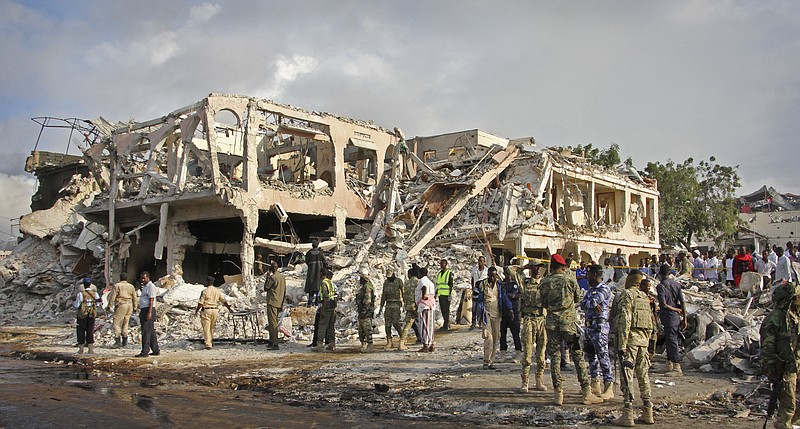JOHANNESBURG (AP) - Mohamed Sheikh Nor was relaxing and playing with his 10-month-old daughter when his home shook with the worst bombing Somalia's capital had ever seen.
"Then there was a huge blast," the video journalist for The Associated Press said Monday. "At first I thought it was directed at our house. We were covered in smoke and dust."
The explosion from a massive truck bomb on a crowded Mogadishu street ripped the roof off his house.
"My little girl just cried. I grabbed her and my wife. We could see we were not hurt and we escaped unharmed," Sheikh Nor said. "Outside, we could see the explosion was close to us. It was just 70 steps away from our home."
The 35-year-old immediately recognized the unprecedented force of the blast in a city long targeted by Islamic extremist group al-Shabab. The group, blamed by Somalia's government for the attack, has not yet commented.
As soon as he got his family to safety, Sheikh Nor, who has worked for the AP since 2006, got to work. He hurried to the scene, where buildings had been mangled and overturned cars were ablaze.
"There was blood and flesh everywhere. I could hear people screaming for help and I tried to help but they were trapped in the rubble," he said. "I knew this was the biggest explosion in the history of Somalia."
He knew right away that more than 100 people had been killed. The death toll rose beyond 300 on Monday, with nearly 400 others injured. Scores of people remained missing.
"I filmed the buildings that were destroyed. I filmed the rescue workers and the injured and the bodies. It was terrible," Sheikh Nor said. "I knew the world should see this."
His images were some of the first published after the blast.
After working throughout the day, Sheikh Nor gathered with his family at home. His five other children had been at school and were not hurt. "We were thankful to be together and safe."
Sheikh Nor said the huge blast has made him worry that more are on the way. "I worry that there will be more violence. But I think the public will be more vigilant in order to prevent such large explosions."
He said he remains hopeful about the future of Somalia, a country long considered a failed state as conflict and clan tensions ripped it apart for a quarter-century.
"Despite this explosion, I think our country's future is bright," he said. "The public wants the violence to be over. So many people hope for a future that is peaceful. People are coming together. We will have cohesion. Despite such explosions, life will continue. People will build new lives. The future will be good."
As Somalia struggles toward recovery, Sheikh Nor said the roof of his home already has been repaired: "We will sleep well tonight."
